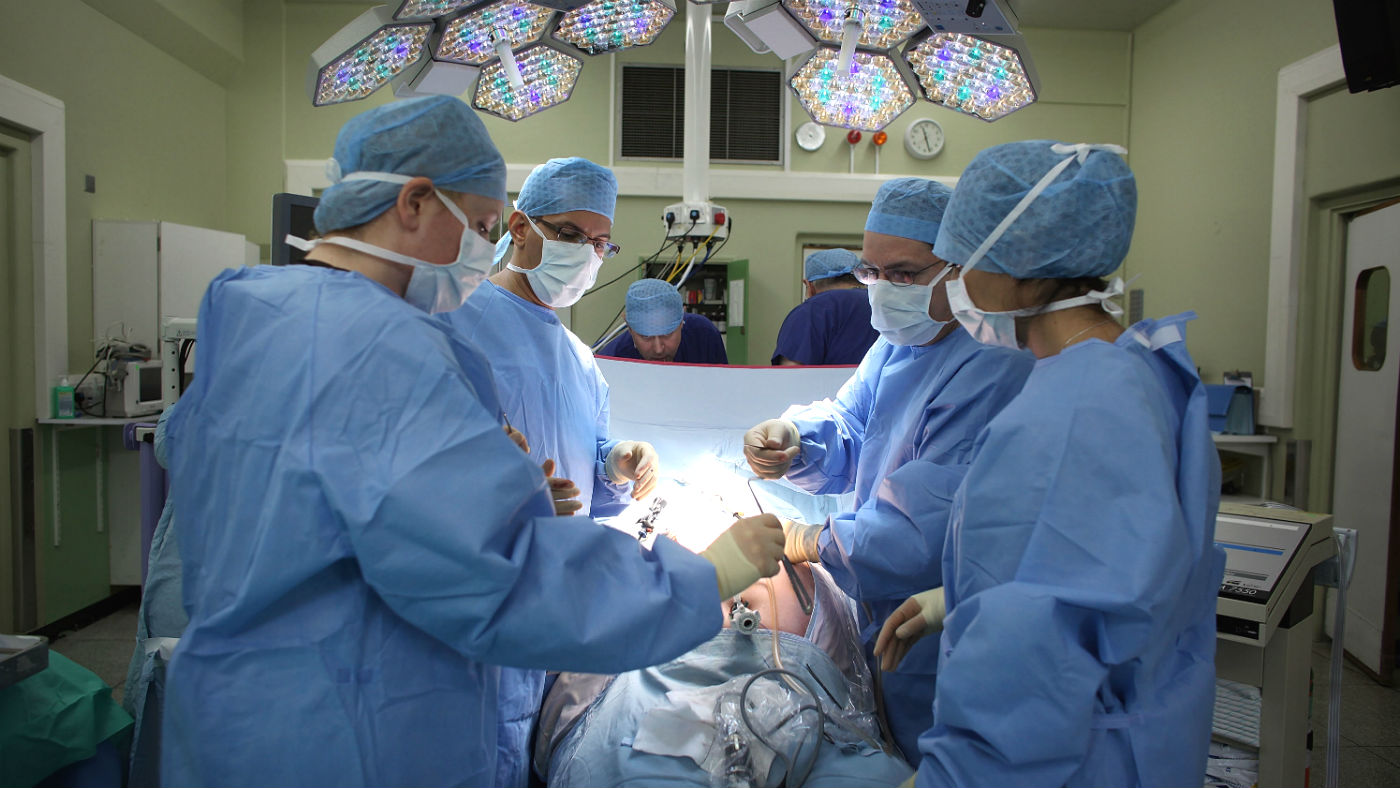A third of NHS doctors trained overseas, raising fears of staffing crisis
Over-reliance on foreign staff means medical profession at 'crunch point' as many turn their back on Brexit Britain

A free daily email with the biggest news stories of the day – and the best features from TheWeek.com
You are now subscribed
Your newsletter sign-up was successful
The health watchdog has warned of a staffing crisis after revealing that a third of NHS doctors come from overseas - and in some areas significantly more.
The General Medical Council (GMC) said the over-reliance on doctors trained abroad meant the medical profession was now at a “crunch point”, as many medics turn their back on Britain in the wake of Brexit.
Forty-three per cent of doctors in the East of England are non-UK graduates, along with 41% in the West Midlands and 38% in the East Midlands - compared with the national average of 33%. These are all areas that voted heavily to leave the EU.
The Week
Escape your echo chamber. Get the facts behind the news, plus analysis from multiple perspectives.

Sign up for The Week's Free Newsletters
From our morning news briefing to a weekly Good News Newsletter, get the best of The Week delivered directly to your inbox.
From our morning news briefing to a weekly Good News Newsletter, get the best of The Week delivered directly to your inbox.
The GMC said while the number of registered doctors had increased by just 2% over the past five years, there has been a 28% rise in A&E admissions, creating an unsustainable strain on existing NHS staff.
Charlie Massey, chief executive of the GMC, told The Daily Telegraph: “We have reached a crucial moment - a crunch point - in the development of the UK’s medical workforce. The decisions that we make over the next five years will determine whether it can meet these extra demands.”
He called for changes in training to create a workplace culture that nurtures doctors and “allows us to be swift and agile in carrying out our primary duty - keeping patients safe - while reducing the stress and burden on doctors and the wider healthcare system”.
However, Professor Jane Dacre, president of the Royal College of Physicians, highlighted the problems faced by the medical profession as demand increasingly outstrips supply. With an ageing population, she said the low numbers of new doctors entering geriatric and acute internal medicine was of particular concern.
A free daily email with the biggest news stories of the day – and the best features from TheWeek.com
-
 How the FCC’s ‘equal time’ rule works
How the FCC’s ‘equal time’ rule worksIn the Spotlight The law is at the heart of the Colbert-CBS conflict
-
 What is the endgame in the DHS shutdown?
What is the endgame in the DHS shutdown?Today’s Big Question Democrats want to rein in ICE’s immigration crackdown
-
 ‘Poor time management isn’t just an inconvenience’
‘Poor time management isn’t just an inconvenience’Instant Opinion Opinion, comment and editorials of the day
-
 A real head scratcher: how scabies returned to the UK
A real head scratcher: how scabies returned to the UKThe Explainer The ‘Victorian-era’ condition is on the rise in the UK, and experts aren’t sure why
-
 How dangerous is the ‘K’ strain super-flu?
How dangerous is the ‘K’ strain super-flu?The Explainer Surge in cases of new variant H3N2 flu in UK and around the world
-
 The ‘menopause gold rush’
The ‘menopause gold rush’Under the Radar Women vulnerable to misinformation and marketing of ‘unregulated’ products
-
 How the care industry came to rely on migrant workers
How the care industry came to rely on migrant workersThe Explainer Government crackdown on recruiting workers abroad risks deepening care sector crisis, industry leaders warn
-
 Could medics' misgivings spell the end of the assisted dying bill?
Could medics' misgivings spell the end of the assisted dying bill?Today's Big Question The Royal College of Psychiatrists has identified 'serious concerns' with the landmark bill – and MPs are taking notice
-
 Washwood Heath: Birmingham's pioneering neighbourhood health service
Washwood Heath: Birmingham's pioneering neighbourhood health serviceIn the Spotlight NHS England chair says there is a 'really good argument this is the model for the future'
-
 The UK's first legal drug consumption room
The UK's first legal drug consumption roomThe Explainer 'Potentially transformative moment in UK drugs policy' as The Thistle opens in Glasgow
-
 How can the UK solve the adult social care crisis?
How can the UK solve the adult social care crisis?Today's Big Question New commission announced to turn our buckling care sector around: yet more delay or finally a way forward?